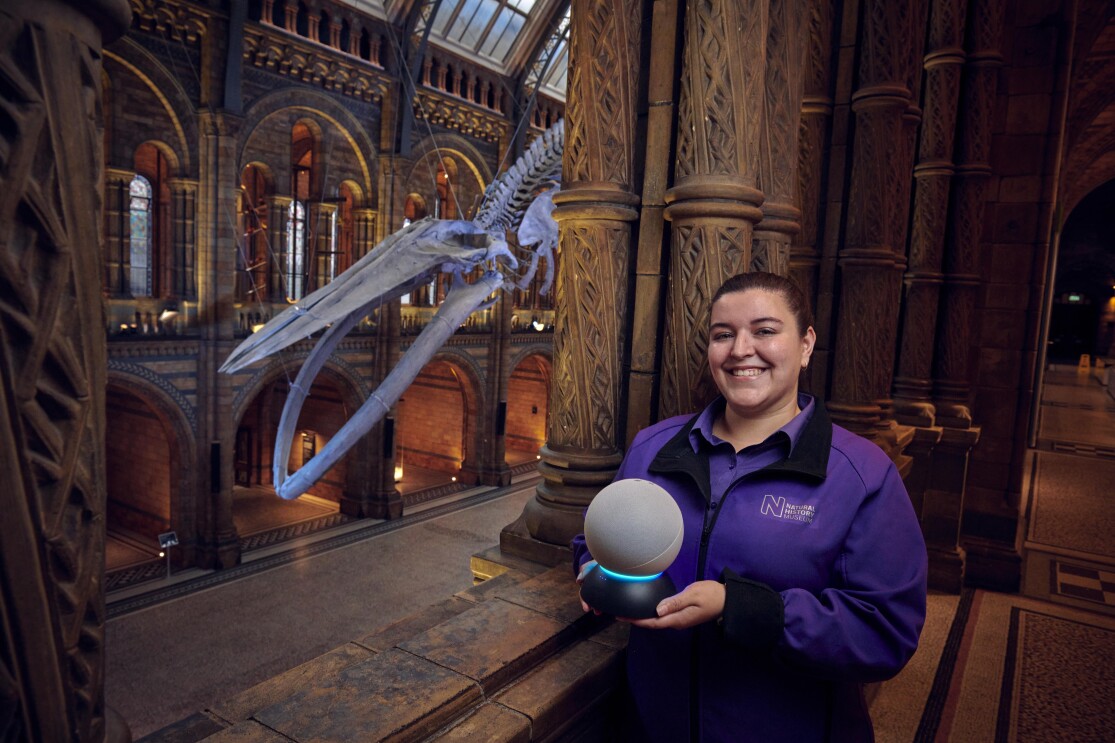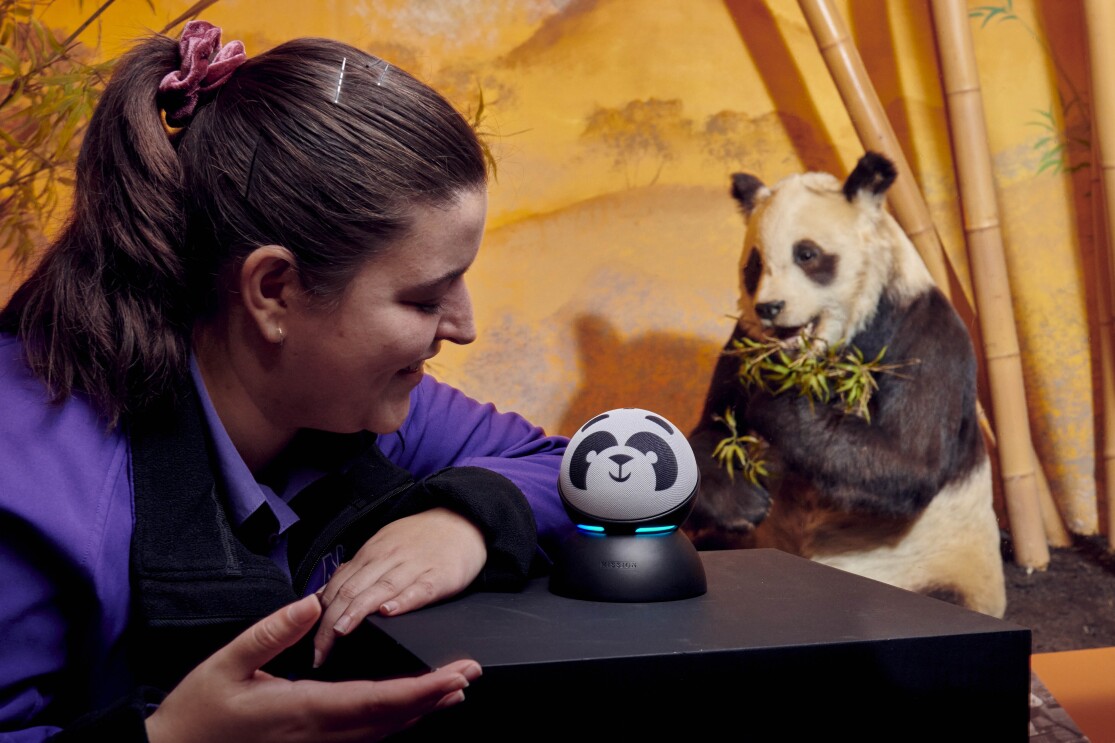Alexa is always getting smarter, and following an extra-curricular trip to London’s iconic Natural History Museum, Alexa can now answer some of the Museum’s popular science and history questions, allowing curious minds to continue learning and explore the natural world’s most astonishing facts and unusual stories, using just their voice.
In a unique collaboration with the world-leading science research centre, customers can ask Alexa specific queries in line with the Natural History Museum’s “What on Earth” and “Quick Questions” hubs, including fun facts about the Earth’s oceans and marine life with utterances such as “Alexa, how do oysters make pearls” and “Alexa, what do killer whales eat?” to the stranger side of the natural world with questions such as “Alexa, why do goats faint and scream?” to “Alexa, how much slime can a slime eel make?”.
Within the update, Alexa has also learnt the history of dinosaurs, utilising the Museum’s research and findings. Alexa users can simply ask “Alexa, give me a dinosaur fact” to learn more.
From today, customers will also be able to ask a string of questions around the environment and climate change to hear insights straight from the museum, including “Alexa, what are some of the effects of climate change?” and “Alexa, how much plastic is in the ocean?”
For customers who are looking to test their knowledge on the history of the natural world, Alexa users can launch quizzes on a number of topics to play along with their friends and families, by asking Alexa to quiz them on dinosaurs, climate change, space, oceans and planet Earth.

We’re always looking for new ways to feed curious minds fascinating facts and stories from the Natural History Museum
Dan Phelan
Director of Communications, Digital and Marketing at Natural History Museum“The Natural History Museum is a hub of intriguing knowledge and we’re excited to be able to share that wealth of knowledge with customers,” said Dennis Stansbury, Alexa UK & Ireland Country Manager. “With a range of new content to discover, from learning all about the famous Dippy the dinosaur to how long a whale can hold its breath, we’re opening up a world of opportunities for Alexa users to investigate the weird, wonderful and downright peculiar.”
Dan Phelan, Director of Communications, Digital and Marketing at the Natural History Museum said: “We’re always looking for new ways to feed curious minds fascinating facts and stories from the Natural History Museum. Bringing our world to Alexa means we can expand imaginations, and inspire children to become advocates for the planet.”
In addition to the Natural History Museum facts and trivia, customers looking to visit the Museum will now be able to ask Alexa information about the Museum itself, including opening hours, ticket information, disables access and how to become a member at both the London and Tring venues.

From today, all customers owning Alexa-enabled devices, including Fire TV and Fire Tablet will also be able to ask “Alexa, what’s my Natural History Museum fact of the day” to learn something new every day.
Top utterances to try with Alexa:
Quizzes and Fact of the Day:
- “Alexa, what’s my Natural Museum fact of the day?”
- “Alexa, quiz me on dinosaurs/climate change/space/oceans/planet Earth"
Land animals
- “Alexa, what is the longest snake in the world?”
- “Alexa, why do camels have humps?”
- “Alexa, where are king cobras found?”
- “Alexa, do all goats faint and scream?”
- “Alexa, are murder hornets dangerous?”
Ocean
- “Alexa, how deep is the ocean?”
- “Alexa, why is the sea salty?”
- “Alexa, what is a coral reef?”
- “Alexa, how deep can a whale dive?”
- “Alexa, what is the lifecycle of a jellyfish?”
Climate change:
- “Alexa, what is a carbon footprint?”
- “Alexa, will all weather be affected by climate change?”
- “Alexa, how will climate change affect humans?”
- “Alexa, what is global warming?”
Learn more about some of the engaging questions Alexa can answer.








